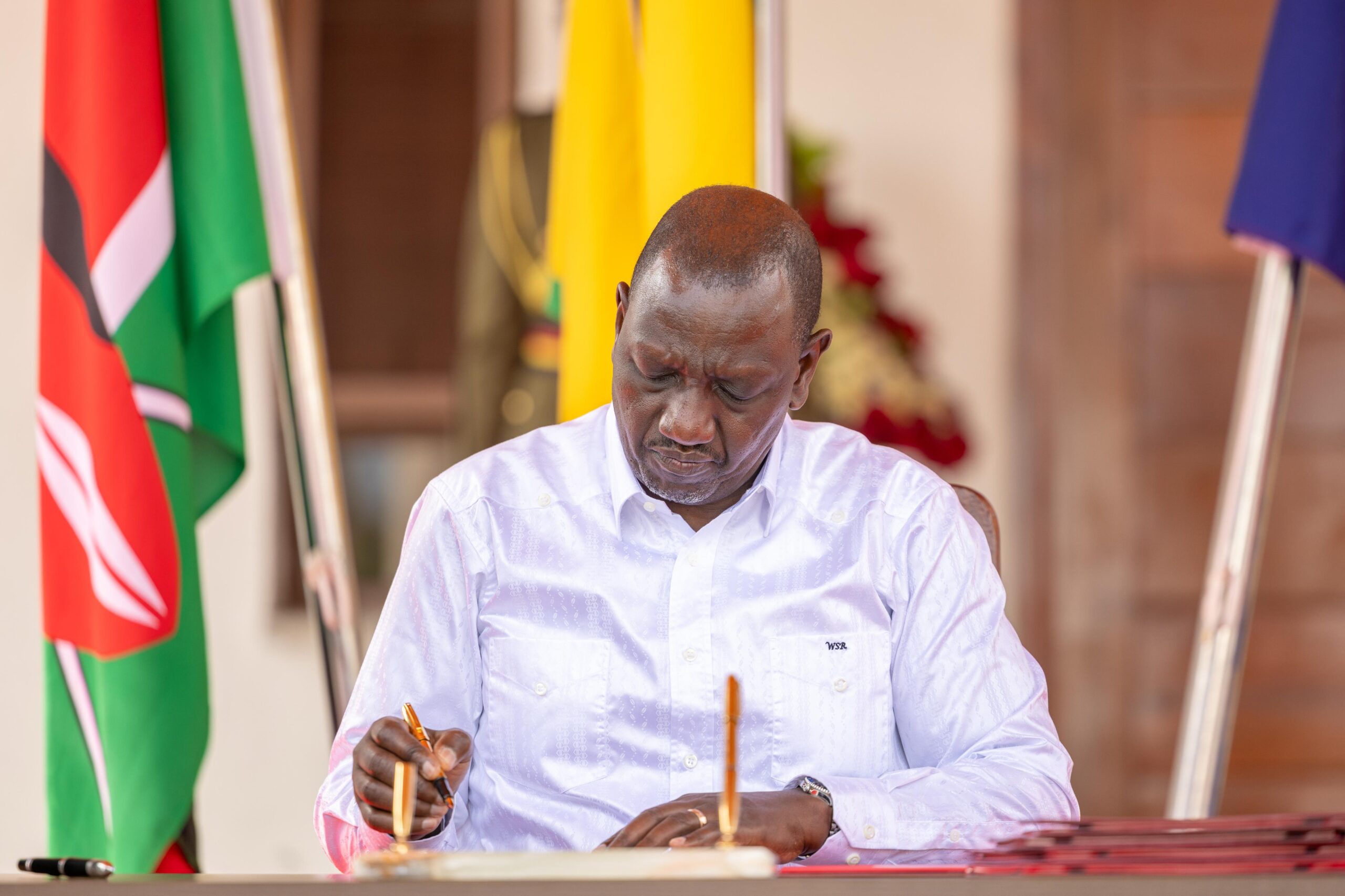
Petition stalls Ruto’s OP-led multi-agency task team on graft » Capital News
NAIROBI, Kenya, Aug 20 – The High Court has suspended President William Ruto’s Executive Order establishing an anti-corruption taskforce led by the Office of the President, pending the determination of a petition challenging its legality.
Justice Bahati Mwamuye of the Milimani Constitutional and Human Rights Division on Wednesday issued conservatory orders halting the implementation of the Presidential Proclamation that created the Multi-Agency Team on War Against Corruption.
He issued the interim orders following an urgent application by Dr Magare Gikenyi, J. Benjamin, Eliud Matindi, and two others, who argued that the taskforce undermines independent constitutional bodies already mandated to fight graft.
Justice Mwamuye directed that the Executive Order remain suspended until the petition is fully heard and determined.
He promised to conclude the matter by December 4.
“Pending the inter partes hearing and determination of the Petitioners/Applicants’ Notice of Motion Application dated 20/08/2025, a conservatory order be and is hereby issued staying the operation and implementation of, or the further operation and/or implementation of, the ‘Presidential Proclamation on the Establishment of Multi-Agency Team on War Against Corruption’ issued under the Hand and Seal of the President of the Republic on 18/08/2025,” Justice Mwamuye ruled.
Virtual hearing on September 9
He directed the petitioners to serve the respondents—including the Presidency, the Attorney-General, and other state agencies—with court papers by August 21.
The respondents are expected to file their responses by August 29, while rejoinders must be submitted by September 5.
The court will mention the matter virtually on September 9 to confirm compliance and issue directions for an expedited hearing.
The suspension marks an early setback for President Ruto, who unveiled the 11-member MAT on August 18, describing it as a bold step to streamline and reinforce Kenya’s anti-corruption fight through a “whole-of-government” approach.
The team, chaired by the Executive Office of the President and anchored by the Attorney-General’s office, was to draw membership from the National Intelligence Service (NIS), Ethics and Anti-Corruption Commission (EACC), Office of the Director of Public Prosecutions (ODPP), Directorate of Criminal Investigations (DCI), Financial Reporting Centre (FRC), Asset Recovery Agency (ARA), Kenya Revenue Authority (KRA), Central Bank of Kenya (CBK), and the Public Procurement Regulatory Authority (PPRA).
Extortion in Parliament
Ruto defended the initiative as a measure to ensure coordinated, efficient, and impactful anti-graft interventions, warning that corruption in state offices, including Parliament, had reached alarming levels.
However, the petitioners insist the President overstepped his authority by establishing the body, arguing that it risks weakening independent offices constitutionally mandated to investigate and prosecute corruption.
The establishment of the multi-agency team came a day after President Ruto and ODM leader Raila Odinga jointly cautioned legislators against turning parliamentary committees into “extortion rackets.”
Ruto accused some lawmakers of demanding millions of shillings in bribes to influence legislation and oversight processes, warning that both bribe-takers and bribe-givers would be arrested.
“We are not going to shame them. We are going to arrest them – those giving, those receiving, and those facilitating,” Ruto warned.
Odinga, on his part, noted that while lobbying is a legitimate practice globally, in Kenya it had degenerated into outright extortion, undermining Parliament’s credibility and scaring away investors.
Visited 1 times, 1 visit(s) today